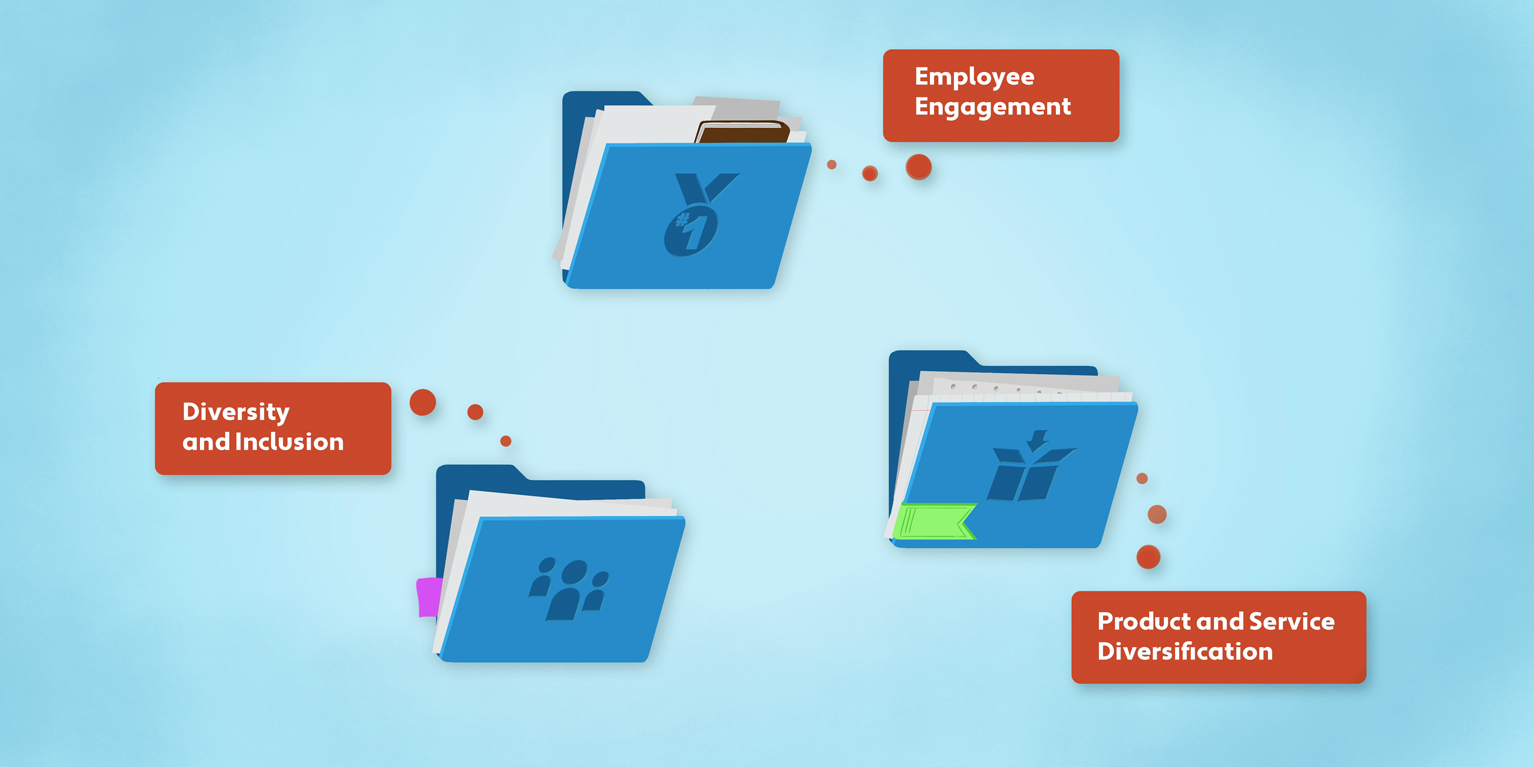Three Key Business Initiatives to Implement Now
The start of a new year always feels fresh with opportunity, especially following a particularly tumultuous year, as we experienced in 2020. While we may not yet be finished enduring the impact of the global pandemic, there is no better time than now to be planning and preparing for new growth and opportunity for your business.
Any number of initiatives will be mission-critical for your organization over the year ahead, but may we suggest three areas that have the power to dramatically impact and improve your business – not just now, but for years to come.
Diversity and inclusion
Merely having a statement that reflects your values on diversity and inclusion in the workplace is not enough to adequately meet the needs and expectations of your employees and your customers. Companies can no longer take a reactive approach to D&I policies, instead, it needs to be part of an ongoing, active and transparent program.
The value of a diverse team has been well documented. Companies with employees of varied ethnicities, cultures, genders, ages and backgrounds are consistently proven to be more profitable, more innovative and to outpace the competition. Diversity, however, is only half of the equation. To meet the needs of your team today, inclusivity has got to be a top priority.
Consider whether your workplace fosters opportunities for every voice to be heard. Do team meetings and other gathering events reflect the needs and preferences of all participants? Are employees free to appropriately express or take part in various aspects of their personal cultures or religions? The more diverse your workforce, the more obvious these issues become. Rather than assuming every employee feels included, a strong D&I program asks the hard questions and seeks answers from every level of the company. If you don’t already have a formal D&I program in place, plan in 2021 to make that a priority.
Employee engagement
The past year wasn’t just hard on companies, but on individuals as well. Every single person you work with most likely faced frustration and hardship, perhaps even great loss. Despite the collective struggles that 2020 brought us, a recent survey found that only 23% of people felt well-supported by their employers. When asked how that could improve, employees confided that what they most wanted was a better work-life balance, support for their health and well-being, and greater acknowledgment and appreciation for their contributions.
The good news is that improving employee engagement doesn’t have to be hard. In fact, it can be summed up in one simple phrase “do the right thing.” When examining the bottom line of the business it can be easy to overlook the people who help create the success. Doing so, however, will be one of the quickest roads to failure. Especially now when individuals have greater freedom in choosing how and where they want to work.
If you don’t know where you stand with your employee engagement efforts, it’s best to start by asking the hard questions and demonstrating a willingness to accept the answers. Do your employees feel heard, understood and supported? Do you have company-wide initiatives that address their needs and concerns? Have you found ways to encourage better work-life balance and do your executive teams model that effort? Do you take the time to recognize achievement and effort, regardless of outcomes?
Investing in your employees is always a savvy business strategy. Take time now to build employee engagement initiatives that will pay dividends for a long time to come.
Product and service diversification
Depending on what your business does, chances are 2020 shone a light on areas that could be improved, changed or even abandoned altogether. Significant upheaval has the power to do that, and it isn’t always a bad thing. Perhaps you’ve become aware that a product or service no longer has the same value to your market, or maybe it is no longer sustainable in the same way. Perhaps the market is shifting towards something different or new and your business needs to keep up.
To pivot in business does not mean you’re doomed. It can mean that you are adept at reading the signs and recognizing where things are heading, and that you’re capable of setting up the company for success on a new frontier. To effectively continue to grow, diversification has to be one of your top strategic initiatives.
To diversify is not without risk, which is why it should be undertaken thoughtfully and with careful consideration of both the potential for profitability and the potential for loss. To avoid diversification, however, over the fear of risk, is to negate significant opportunities for growth. If the past year has been any indication, diversification is a key component to survival.
Creating new initiatives from scratch or trying to improve upon existing ones takes concerted effort, strong communication and transparency among key stakeholders. Let StrategyBlocks help you turn initiatives into actionable goals. Contact us today and learn how we can help you turn your ideas into realities.




Leave A Comment